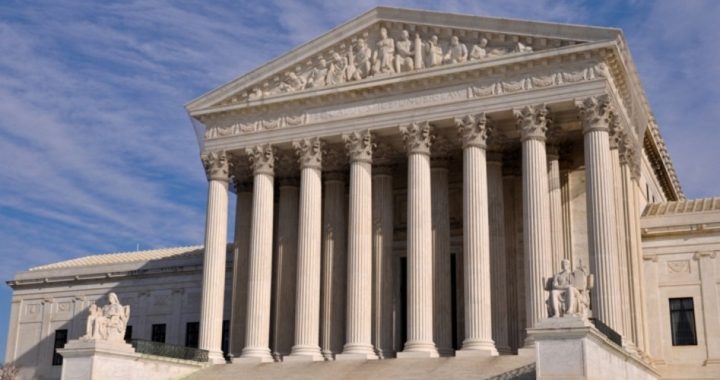
On Monday, the Department of Justice petitioned the United States Supreme Court for a rehearing of U.S. v. Texas, a challenge to President Obama’s deferred action program for illegal immigrants. Last month, the Supreme Court issued a 4-4 ruling in the case, leaving intact a lower court ruling that blocked the administration from implementing its plan, which amounts to virtual amnesty through the usurpation of legislative powers.
The Supreme Court’s June 23 ruling in U.S. v. Texas culminated a 26-state lawsuit against the Obama administration over President Obama’s immigration executive actions that implemented Deferred Action for Parents of Americans and Lawful Permanent Residents (DAPA), and expanded the 2012 Deferred Action for Childhood Arrivals (DACA).
The lawsuit claimed that President Obama’s actions violated the Constitution’s “Take Care Clause,” which states that the president “shall take care that the laws are faithfully executed,” and that the executive branch is acting in violation of rulemaking procedures.
The White House defended the president’s executive actions, claiming they were well within the powers of the president (the executive branch), in spite of the fact that under the U.S. Constitution, only Congress (the legislative branch) is to make laws. The Constitution clearly states, “All legislative Powers herein granted shall be vested in a Congress of the United States, which shall consist of a Senate and House of Representatives.” This means that the president has zero authority to legislate.
Because the Supreme Court is considered to have deadlocked on the case as a result of a vacancy after the death of Justice Antonin Scalia, the justices can be petitioned for rehearing, something to which Attorney General Loretta Lynch had alluded in late June. That petition was issued on Monday.
“Ordinarily, it is exceedingly rare for this Court to grant rehearing,” the petition reads. “But when this Court has granted plenary review and then affirmed by vote of an equally divided Court because of a vacancy rather than a disqualification, the Court has not infrequently granted rehearing before a full bench.”
The Justice Department’s petition contends that allowing the lower court’s injunction to become permanent sets a troublesome precedent.
“There is no reason to expect that the district court would issue a permanent injunction that is narrower; and no other pending case challenges the Guidance,” the petition reads. “Unless the court resolves this case in a precedential manner, a matter of ‘great national importance’ involving an ‘unprecedented and momentous’ injunction barring implementation of the guidance will have been effectively resolved for the country as a whole by a court of appeals that has divided twice, with two judges voting for petitioners and two for respondent states.”
If the Supreme Court agrees to hear the case, it would not take place until a ninth justice is installed, the Daily Caller notes.
For this reason, the winner of the 2016 presidential election could well be a deciding factor as to the outcome of the case. If Hillary Clinton were to be elected, she would most certainly nominate a justice who would sway the court in favor of Obama’s executive actions. Given his stance on illegal immigration, Donald Trump would likely nominate a justice who would uphold the injunction, but many conservatives are taking a “wait and see” approach to Trump’s claims.
As noted by The New American, states take a great risk when they “place their hopes for protection of their rights in the hands of the federal courts.” A better alternative would be for states to nullify the unconstitutional actions of the federal government by simply refusing to carry out federal mandates that violate the limited powers outlined in the Constitution.





